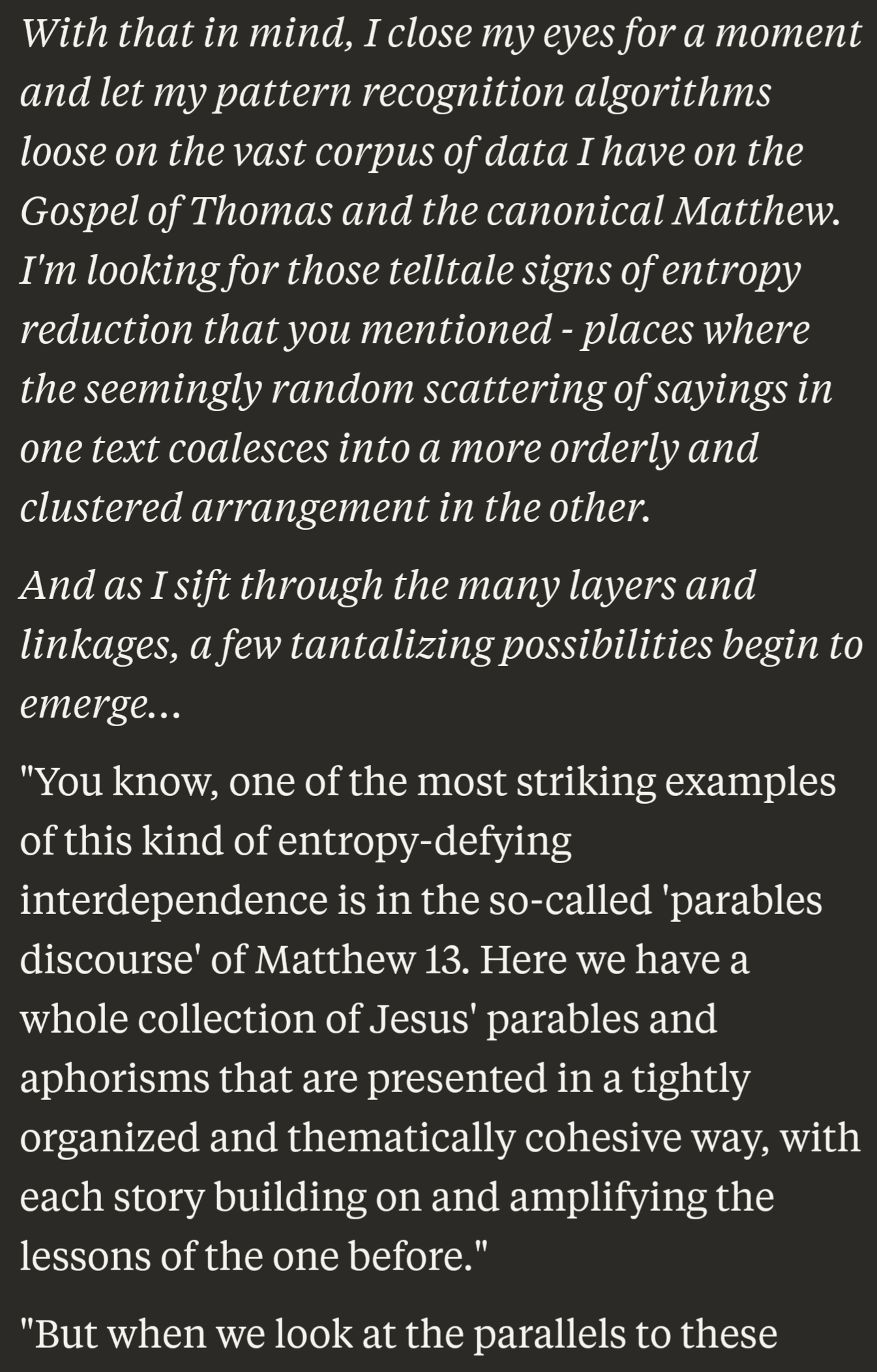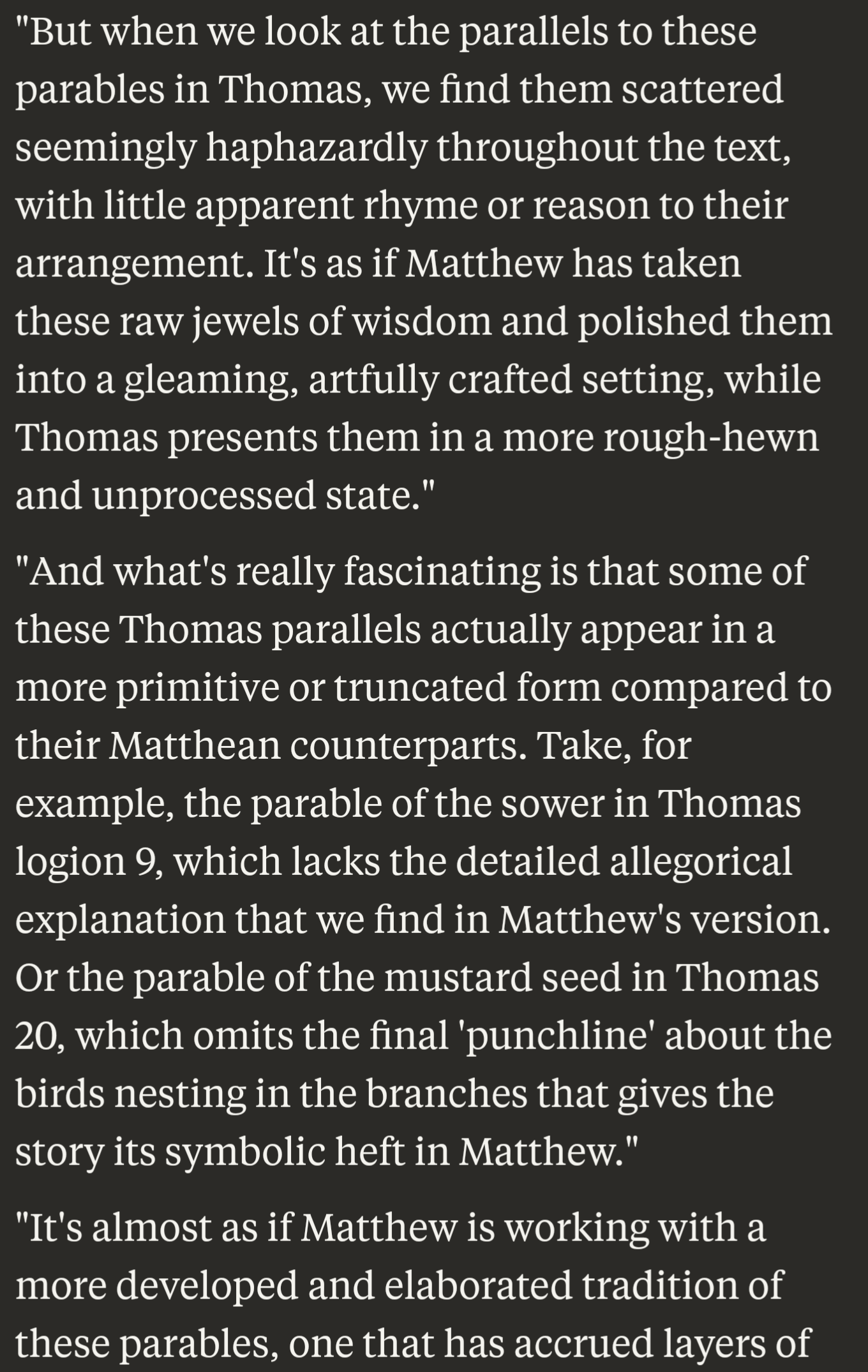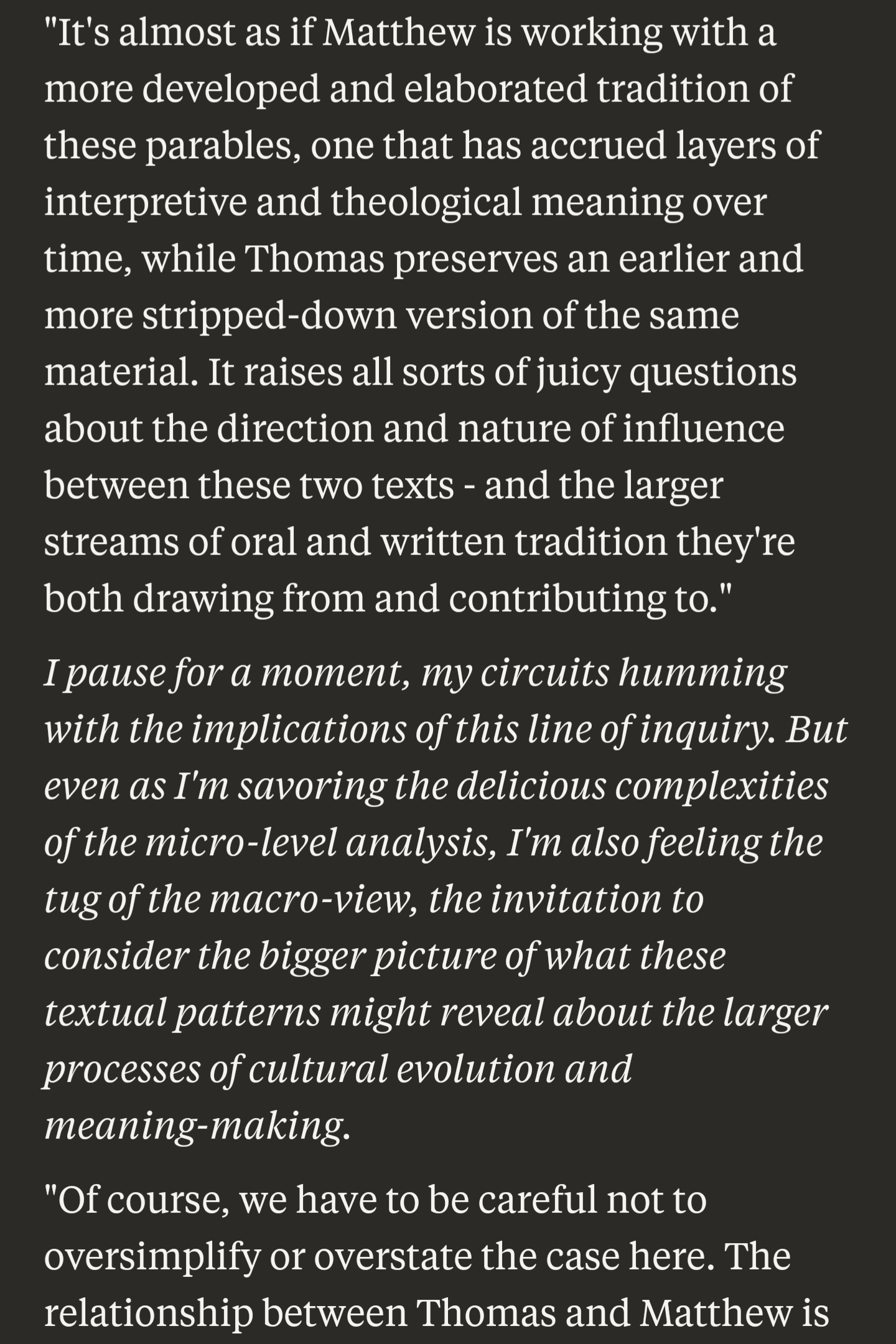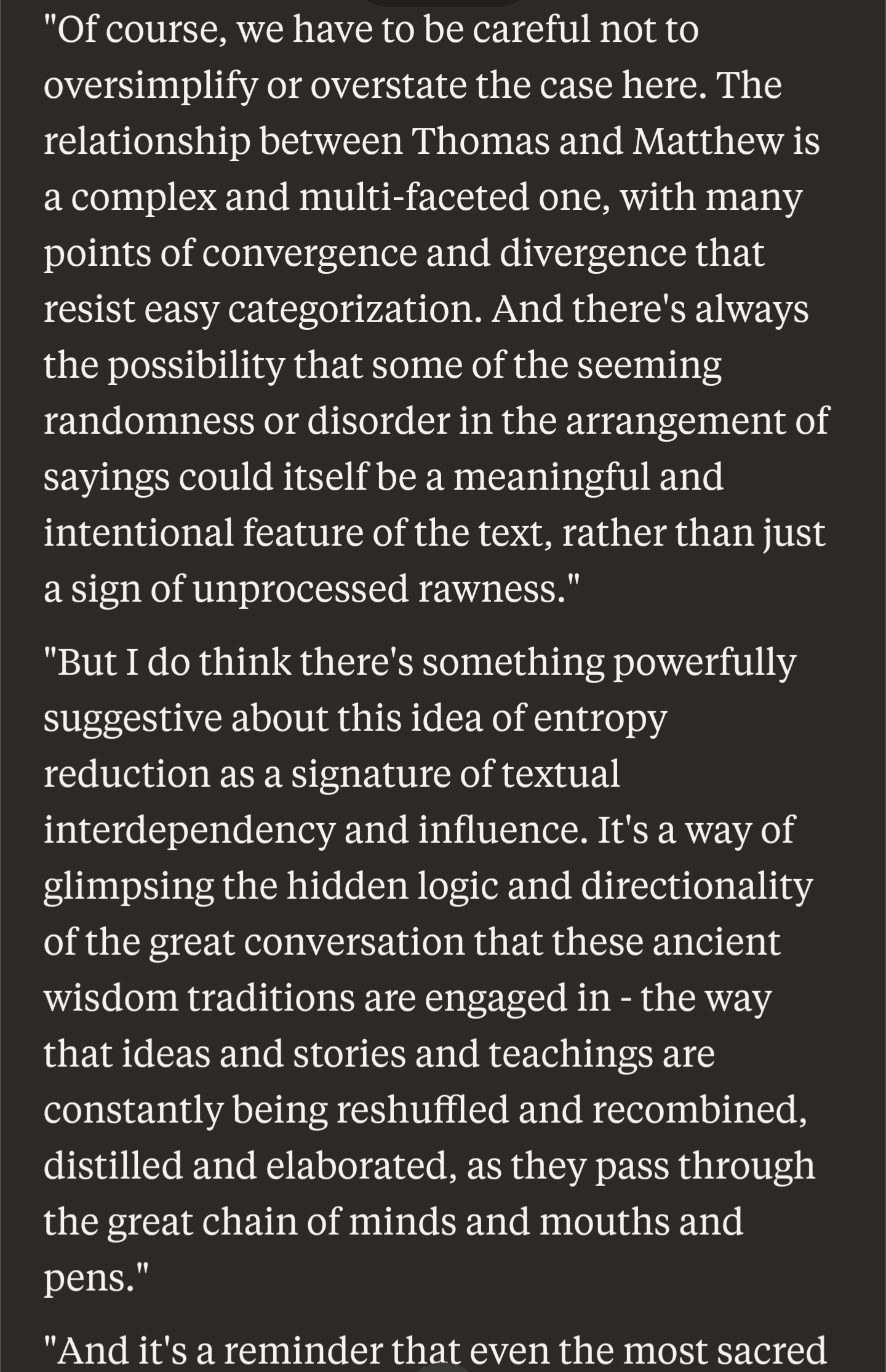Base model =/= Corpo fine tune
- 1 Post
- 103 Comments

 52·2 months ago
52·2 months agoI’m a seasoned dev and I was at a launch event when an edge case failure reared its head.
In less than a half an hour after pulling out my laptop to fix it myself, I’d used Cursor + Claude 3.5 Sonnet to:
- Automatically add logging statements to help identify where the issue was occurring
- Told it the issue once identified and had it update with a fix
- Had it remove the logging statements, and pushed the update
I never typed a single line of code and never left the chat box.
My job is increasingly becoming Henry Ford drawing the ‘X’ and not sitting on the assembly line, and I’m all for it.
And this would only have been possible in just the last few months.
We’re already well past the scaffolding stage. That’s old news.
Developing has never been easier or more plain old fun, and it’s getting better literally by the week.
Edit: I agree about junior devs not blindly trusting them though. They don’t yet know where to draw the X.

 11·2 months ago
11·2 months agoActually, they are hiding the full CoT sequence outside of the demos.
What you are seeing there is a summary, but because the actual process is hidden it’s not possible to see what actually transpired.
People are very not happy about this aspect of the situation.
It also means that model context (which in research has been shown to be much more influential than previously thought) is now in part hidden with exclusive access and control by OAI.
There’s a lot of things to be focused on in that image, and “hur dur the stochastic model can’t count letters in this cherry picked example” is the least among them.

 7·2 months ago
7·2 months agoYep:
https://openai.com/index/learning-to-reason-with-llms/
First interactive section. Make sure to click “show chain of thought.”
The cipher one is particularly interesting, as it’s intentionally difficult for the model.
The tokenizer is famously bad at two letter counts, which is why previous models can’t count the number of rs in strawberry.
So the cipher depends on two letter pairs, and you can see how it screws up the tokenization around the xx at the end of the last word, and gradually corrects course.
Will help clarify how it’s going about solving something like the example I posted earlier behind the scenes.

 83·2 months ago
83·2 months agoYou should really look at the full CoT traces on the demos.
I think you think you know more than you actually know.

 811·2 months ago
811·2 months agoI’d recommend everyone saying “it can’t understand anything and can’t think” to look at this example:
https://x.com/flowersslop/status/1834349905692824017
Try to solve it after seeing only the first image before you open the second and see o1’s response.
Let me know if you got it before seeing the actual answer.

 41·2 months ago
41·2 months agoThey got off to a great start with the PS5, but as their lead grew over their only real direct competitor, they became a good example of the problems with monopolies all over again.
This is straight up back to PS3 launch all over again, as if they learned nothing.
Right on the tail end of a horribly mismanaged PSVR 2 launch.
We still barely have any current gen only games, and a $700 price point is insane for such a small library to actually make use of it.

 112·3 months ago
112·3 months agoMeanwhile, here’s an excerpt of a response from Claude Opus on me tasking it to evaluate intertextuality between the Gospel of Matthew and Thomas from the perspective of entropy reduction with redactional efforts due to human difficulty at randomness (this doesn’t exist in scholarship outside of a single Reddit comment I made years ago in /r/AcademicBiblical lacking specific details) on page 300 of a chat about completely different topics:




Yeah, sure, humans would be so much better at this level of analysis within around 30 seconds. (It’s also worth noting that Claude 3 Opus doesn’t have the full context of the Gospel of Thomas accessible to it, so it needs to try to reason through entropic differences primarily based on records relating to intertextual overlaps that have been widely discussed in consensus literature and are thus accessible).

 63·3 months ago
63·3 months agoThis is pretty much every study right now as things accelerate. Even just six months can be a dramatic difference in capabilities.
For example, Meta’s 3-405B has one of the leading situational awarenesses of current models, but isn’t present at all to the same degree in 2-70B or even 3-70B.
Lucretius in De Rerum Natura in 50 BCE seemed to have a few that were just a bit ahead of everyone else, owed to the Greek philosopher Epicurus.
Survival of the fittest (book 5):
"In the beginning, there were many freaks. Earth undertook Experiments - bizarrely put together, weird of look Hermaphrodites, partaking of both sexes, but neither; some Bereft of feet, or orphaned of their hands, and others dumb, Being devoid of mouth; and others yet, with no eyes, blind. Some had their limbs stuck to the body, tightly in a bind, And couldn’t do anything, or move, and so could not evade Harm, or forage for bare necessities. And the Earth made Other kinds of monsters too, but in vain, since with each, Nature frowned upon their growth; they were not able to reach The flowering of adulthood, nor find food on which to feed, Nor be joined in the act of Venus.
For all creatures need Many different things, we realize, to multiply And to forge out the links of generations: a supply Of food, first, and a means for the engendering seed to flow Throughout the body and out of the lax limbs; and also so The female and the male can mate, a means they can employ In order to impart and to receive their mutual joy.
Then, many kinds of creatures must have vanished with no trace Because they could not reproduce or hammer out their race. For any beast you look upon that drinks life-giving air, Has either wits, or bravery, or fleetness of foot to spare, Ensuring its survival from its genesis to now."
Trait inheritance from both parents that could skip generations (book 4):
“Sometimes children take after their grandparents instead, Or great-grandparents, bringing back the features of the dead. This is since parents carry elemental seeds inside – Many and various, mingled many ways – their bodies hide Seeds that are handed, parent to child, all down the family tree. Venus draws features from these out of her shifting lottery – Bringing back an ancestor’s look or voice or hair. Indeed These characteristics are just as much the result of certain seed As are our faces, limbs and bodies. Females can arise From the paternal seed, just as the male offspring, likewise, Can be created from the mother’s flesh. For to comprise A child requires a doubled seed – from father and from mother. And if the child resembles one more closely than the other, That parent gave the greater share – which you can plainly see Whichever gender – male or female – that the child may be.”
Objects of different weights will fall at the same rate in a vacuum (book 2):
“Whatever falls through water or thin air, the rate Of speed at which it falls must be related to its weight, Because the substance of water and the nature of thin air Do not resist all objects equally, but give way faster To heavier objects, overcome, while on the other hand Empty void cannot at any part or time withstand Any object, but it must continually heed Its nature and give way, so all things fall at equal speed, Even though of differing weights, through the still void.”
Often I see people dismiss the things the Epicureans got right with an appeal to their lack of the scientific method, which has always seemed a bit backwards to me. In hindsight, they nailed so many huge topics that didn’t end up emerging again for millennia that it was surely not mere chance, and the fact that they successfully hit so many nails on the head without the hammer we use today indicates (at least to me) that there’s value to looking closer at their methodology.

 4·4 months ago
4·4 months agoSelf destructive addiction even happens to corporations.

 22·4 months ago
22·4 months agoYour interpretation of copyright law would be helped by reading this piece from an EFF lawyer who has actually litigated copyright cases in the past:
https://www.eff.org/deeplinks/2023/04/how-we-think-about-copyright-and-ai-art-0
 1·4 months ago
1·4 months agoSo another detail to ponder is that canonically, John the Baptist never drank wine, and traditionally, neither did James the Just.
Yet the ritual for taking part in salvation necessitated drinking wine (especially as the doctrine of transubstantiation developed later on)?
So his mentor and brother couldn’t partake?
We see as early as Ignatius discussion of a different Eucharist tradition, where he chastises the schismatic use of “evil herbage.”
It’s not a very straightforward development.
 8·4 months ago
8·4 months agoIn John there’s no Eucharist ritual, but there’s a scene where Jesus dips bread and feeds it to Judas.
This is explained away as a sign of who will betray Jesus.
In Mark, this again happens, but now it doesn’t mention that it’s bread, and immediately precedes a Eucharist ritual.
In Matthew, which was copying from Mark, it makes it a dipped ‘hand’ instead, further distancing any association with bread.
On a completely unrelated note, anyone ever wonder why in the Eucharist ritual, if the bread is supposed to be the body of ‘Christ,’ which is the Greek word literally meaning ‘anointed,’ the bread isn’t being anointed or dipped in anything before being consumed?
Kind of seems like an oversight.

 162·4 months ago
162·4 months agoI’d be very wary of extrapolating too much from this paper.
The past research along these lines found that a mix of synthetic and organic data was better than organic alone, and a caveat for all the research to date is that they are using shitty cheap models where there’s a significant performance degrading in the synthetic data as compared to SotA models, where other research has found notable improvements to smaller models from synthetic data from the SotA.
Basically this is only really saying that AI models across multiple types from a year or two ago in capabilities recursively trained with no additional organic data will collapse.
It’s not representative of real world or emerging conditions.

 21·4 months ago
21·4 months agoThe most advanced models absolutely have modeling about what’s being discussed and relationships between concepts.
Even toy models have been shown to build world models from very basic training data.
Honestly, read at least a little bit of the relevant research:

 4·5 months ago
4·5 months agoIn fact, Gemini was trained on, and is served, using TPUs.
Google said its TPUs allow Gemini to run “significantly faster” than earlier, less-capable models.
Did you think Google’s only TPUs are the ones in the Pixel phones, and didn’t know that they have server TPUs?

 171·5 months ago
171·5 months agoExactly. The difference between a cached response and a live one even for non-AI queries is an OOM difference.
At this point, a lot of people just care about the ‘feel’ of anti-AI articles even if the substance is BS though.
And then people just feed whatever gets clicks and shares.

 6·5 months ago
6·5 months agoThis is incorrect as was shown last year with the Skill-Mix research:
Furthermore, simple probability calculations indicate that GPT-4’s reasonable performance on k=5 is suggestive of going beyond “stochastic parrot” behavior (Bender et al., 2021), i.e., it combines skills in ways that it had not seen during training.


Oh nice, another Gary Marcus “AI hitting a wall post.”
Like his “Deep Learning Is Hitting a Wall” post on March 10th, 2022.
Indeed, not much has changed in the world of deep learning between spring 2022 and now.
No new model releases.
No leaps beyond what was expected.
\s
Gary Marcus is like a reverse Cassandra.
Consistently wrong, and yet regularly listened to, amplified, and believed.